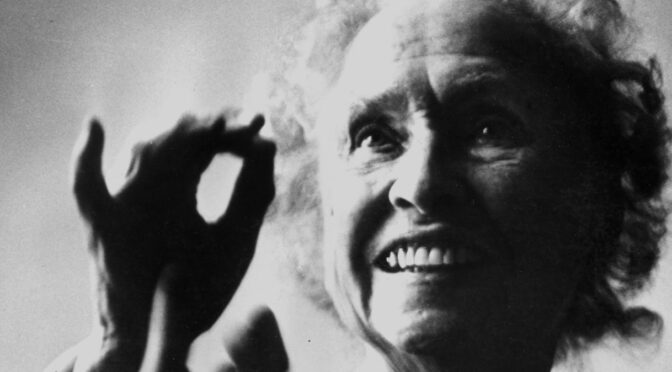Less than 100 years ago, women’s rights were still largely unheard of in Western nations, and there are still fights worldwide for the equal rights of women.
While feminism still has a long way to go in this battle for equality, we thought we would take some time to celebrate a select handful of historical figures who refused to be downtrodden in their quests for a life worth living.
Hildegard of Bingen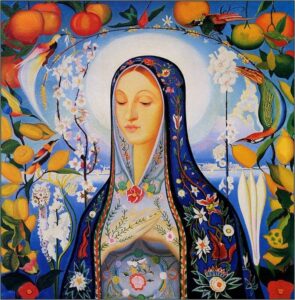
Saint Hildegard was a German Benedictine abbess, composer, philosopher, writer and mystic. She is widely considered to be the founder of scientific natural history in Germany.
Born around the year 1098, Hildegard was a sickly child who was cursed with strange visions. It was for these reasons, perhaps, that she was offered as an oblate (or person dedicated to God’s service) to the Benedictine monastery at Disibodenberg at the age of 14. She was able to attract many followers due to these visions, ironically, as they were a source of struggle in her life.
In her career, she wrote songs, poems, botanical and medicinal texts, theological tomes, and her own coded language. These writings continue to be influential today.
Mirabai
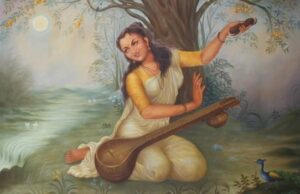 Also known as Meera, she was a 16th century Hindu mystic, poet, and Krishna devotee.
Also known as Meera, she was a 16th century Hindu mystic, poet, and Krishna devotee.
She was born of privilege, but fearlessly defied the social and family conventions expected of a princess by devoting her life to Krishna, who she saw as her lover and husband. Her in-laws persecuted her for this religious devotion, attempting to execute her many times.
Her poetry and devotional songs helped to revitalize the tradition of Bhakti yoga, and she is recognized now as one of the most important figures of a difficult period in Indian history, filled with religious conflict.
Mary Wollstonecraft
She was an 18th century English writer, philosopher, and women’s rights advocate best known for her A Vindication of the Rights of Women, which set forth a moral and practical way to extend political and human rights to women.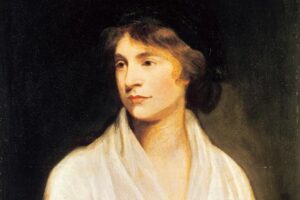 She was not merely a feminist author, though, also noted for her novels, histories, treatises and children’s books.
She was not merely a feminist author, though, also noted for her novels, histories, treatises and children’s books.
Wollstonecraft’s personal life received more attention than her writing in her time, though, as she was engaged in many affairs and otherwise unconventional relationships. She would not receive her due recognition as a groundbreaking author until almost 100 years after her untimely death in 1797 at the age of 38.
This is due to the fact that her widower, William Godwin, published a memoir revealing her unorthodox lifestyle, destroying her reputation for almost a century.
It is notable that her daughter, Mary Wollstonecraft Godwin, became an accomplished writer herself, under the pen name Mary Shelley.
Elizabeth Blackwell
She is notable for being the first woman to receive a U.S. medical degree in 1852, as well as being the first woman on the UK Medical Register in 1858.
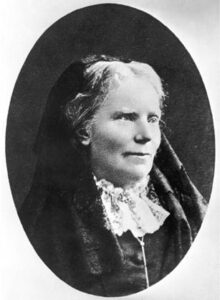 Her father died while she was a teenager, leaving behind his widow, nine children, and mountains of debt. For income, Blackwell and her sisters founded a school, which would be the beginnings of a lifelong interest in education.
Her father died while she was a teenager, leaving behind his widow, nine children, and mountains of debt. For income, Blackwell and her sisters founded a school, which would be the beginnings of a lifelong interest in education.
She originally had no interest in medicine, indeed the idea repulsed her. However, a friend dying of uterine cancer convinced her that female physicians were needed.
It was not until Blackwell’s arbitrary decision to begin a career in medicine that she realized how difficult it would be to overcome patriarchal barriers impeding women who desired a career in this field. Most of her colleagues suggested that she disguise herself as a man, and she was continually denied entrance to medical school due to a presumed intellectual inferiority of being a women.
Her acceptance to Geneva Medical College in New York was almost accidental, but she continued to overcome adversity, including losing sight in one eye (ending her dreams of becoming a surgeon), in her long career, eventually reforming an entire industry’s barring of women.
Helen Keller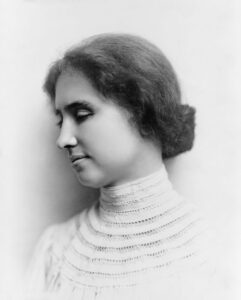
Helen Keller was much more than as depicted in The Miracle Worker. She was the first deaf/blind person to receive a bachelor of arts degree, and was a noted author, activist and lecturer despite her significant disabilities.
Well traveled and outspoken throughout her career, Keller was a member of the Socialist Party of America and the Industrial Workers of the World.
She campaigned for women’s suffrage, labor rights, and other similar causes throughout her life.

